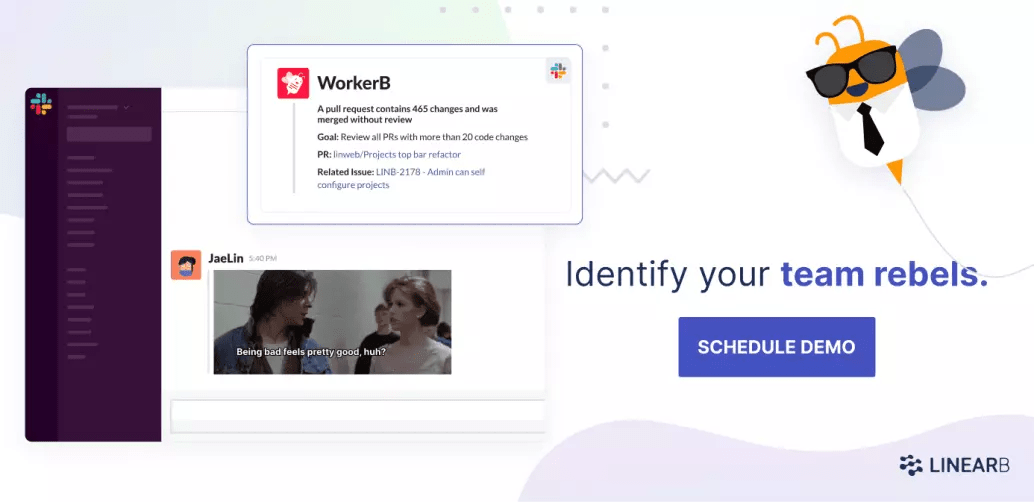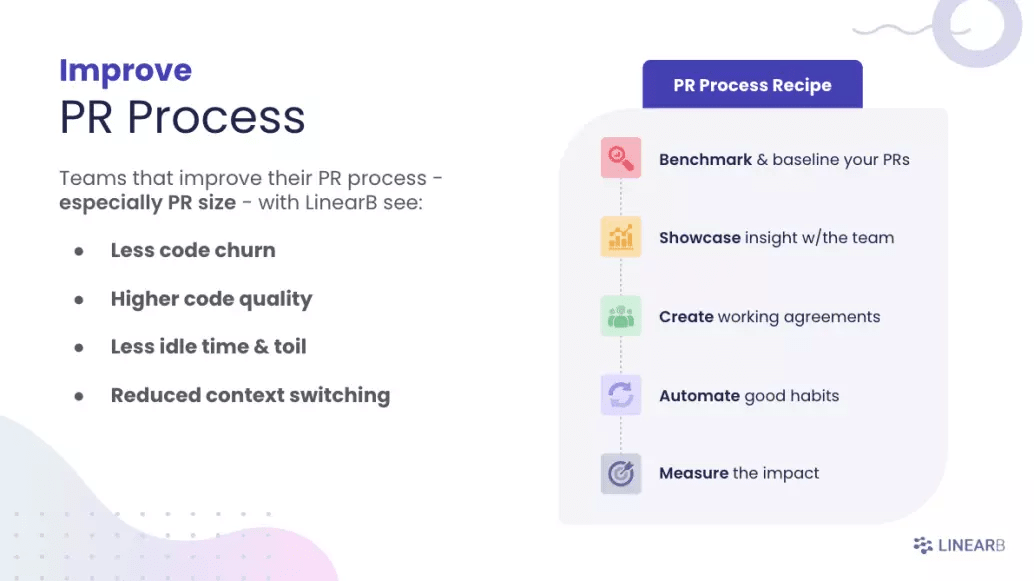Do you know the best way to improve the quality of code your team ships?
In the 2020 Smartbear State of Code Review survey, 24 percent of respondents said that code reviews are the most effective strategy to enhance code quality.
Table of Contents
- What is a Code Review?
- “We Have Tests. We Don’t Need Code Reviews.”
- Code Reviews Improve Code Quality
- Code Reviews Make You More Resilient
- Refining Your Code Review Process
What is a Code Review?
In case you’re new to code reviews, a code review is when a piece of code is evaluated for errors, incompleteness, inconsistencies, violations of best practices, or code smells. They are a crucial part of the software development lifecycle (SDLC) for countless dev teams around the world.
In practice, typically one developer evaluates another developer’s code before it is merged into the existing codebase. This helps to ensure that the code is free of bugs, appropriately structured, and stable.
“We Have Tests. We Don’t Need Code Reviews.”
Test-driven development (TDD) and automated testing have become common practices in the software engineering field. However, tests won’t catch all bugs. Say you have a series of callbacks. In testing, the first callback will almost certainly finish first. But in a production environment, the second callback could finish first, which would result in an error because this case was not handled in the code.
The bug passed through your tests undetected, but it likely would’ve been spotted in a code review. Another developer, with a fresh set of eyes, can spot cases that the original author didn’t think of and that tests didn’t catch.
By the way, static analysis wouldn’t have caught this bug either. A human was needed to see the bug lurking in the code, and that’s what a code review provides.
Getting buy-in from your team can be a challenge to establishing a code review process. Much of the resistance to code reviews comes from the fact that developers naturally don’t like anything that takes up more of their time. Thankfully, with a code review tool like LinearB, you can automate pretty much everything but the review itself. Your team can focus on the important part and not waste time on annoying tasks.
For instance, our WorkerB bot will automatically notify someone when they have been assigned to review a piece of code when a PR is created – no need to manually ping someone asking for a review or to constantly check the remote repo to see what you need to review.
LinearB also promotes buy-in by alerting you when a pull request has been merged without a review. By seeing which developers are not following the code review procedure properly, you can work with them directly to bring them on board.

Code Reviews Improve Code Quality
In the new paradigm of CI/CD, a codebase is constantly being updated. Developers need to transition to the latest technologies; they need to implement new functionality or refactor to improve performance.
Clean code means code that is easier to work with – that is, code that is easier to maintain, add to, and fix.
According to that SmartBear study, the single best way to get your teams writing cleaner code is to introduce code reviews. Peer reviews help to ensure that best practices and preferred style conventions are adhered to. Developers can help to hold one another accountable for shipping quality code.
And LinearB turbocharges your code review by enabling you to closely track progress. If you don’t track your progress, how can you know you’re improving? LinearB enables you to establish a baseline and set customized goals for what you want to improve, and the platform will automatically track your progress against those goals.
This is all made possible by quantitative data on code reviews generated by LinearB, like PR size, review depth, and PR pickup time. This data is presented in the easy-to-use LinearB Metrics dashboard, making it easy to monitor team performance.
But you don’t have to call a meeting every week to harp on areas that need improvement. The WorkerB bot can warn your team when a PR is too large or when a PR has been awaiting a review for too long. Let us help you start leveraging metrics and boosting your team’s performance today.

Code reviews are also a great learning tool. When developers with more experience have the opportunity to review the work of their less-experienced colleagues, not only will the quality of deployed code increase but also the less experienced developers can learn how to write cleaner code.
This is a powerful win-win: the quality of the codebase improves and the developers contributing to it level up their abilities. Code reviews pay off now, in the short term, and also in the long term.
Code Reviews Make You More Resilient
Specialization is a natural part of organizing a developer team. By allowing each developer to focus on a different system component, they can know that system through and through and can easily tackle any malfunction that arises. Specialization boosts overall output but it does have a drawback.
What if there’s a flaw and the developer in charge of that particular piece of the code base isn’t available? They might be sick, on vacation, or they could have changed jobs entirely. Development teams struggle to address such scenarios; they must comb through the source code to determine where the bug originates, which can be time-consuming – and the last thing you want to be doing during a system outage is inefficiently using time.
Whenever your team relies exclusively on one person’s knowledge for a system, the team is at significant risk of a single point of failure. But if your company has a code review process in place, then at minimum one other person has decent knowledge of each part of the codebase.
When an unforeseen bug develops, and the code’s author is not immediately available, you may count on other team members to rapidly resolve the issue and avoid the application from crashing.
Refining Your Code Review Process
When done wrong, code reviews can become a source of annoyance, inefficiency, and tension within a team. Your team members can come to view them as yet another thing being forced upon them. As the leader of an engineering team or org, you can be forced into hounding your engineers to remember the correct steps. A great code review process avoids all of this and turns code reviews into a powerful means to boost your team’s speed and the quality of the code they ship.
LinearB helps you tailor the right process for your team or org. Starting with our metrics, you can measure your baseline and set team goals. Then WorkerB helps drive progress against your goals. Team members receive an individual notification when they need to review code, avoiding issues like hanging PRs that are a drag on progress. Or the team is warned when a review was brief and cursory or when one didn’t happen at all, so another set of eyes can review before merging. You can track your progress against your customized goals over time in the Metrics dashboard and continually refine your process.

Our holistic approach to code reviews transforms them into something more than code reviews. With LinearB, you can equip yourself with a portal onto your team’s performance as well as the tools you need to boost performance.




